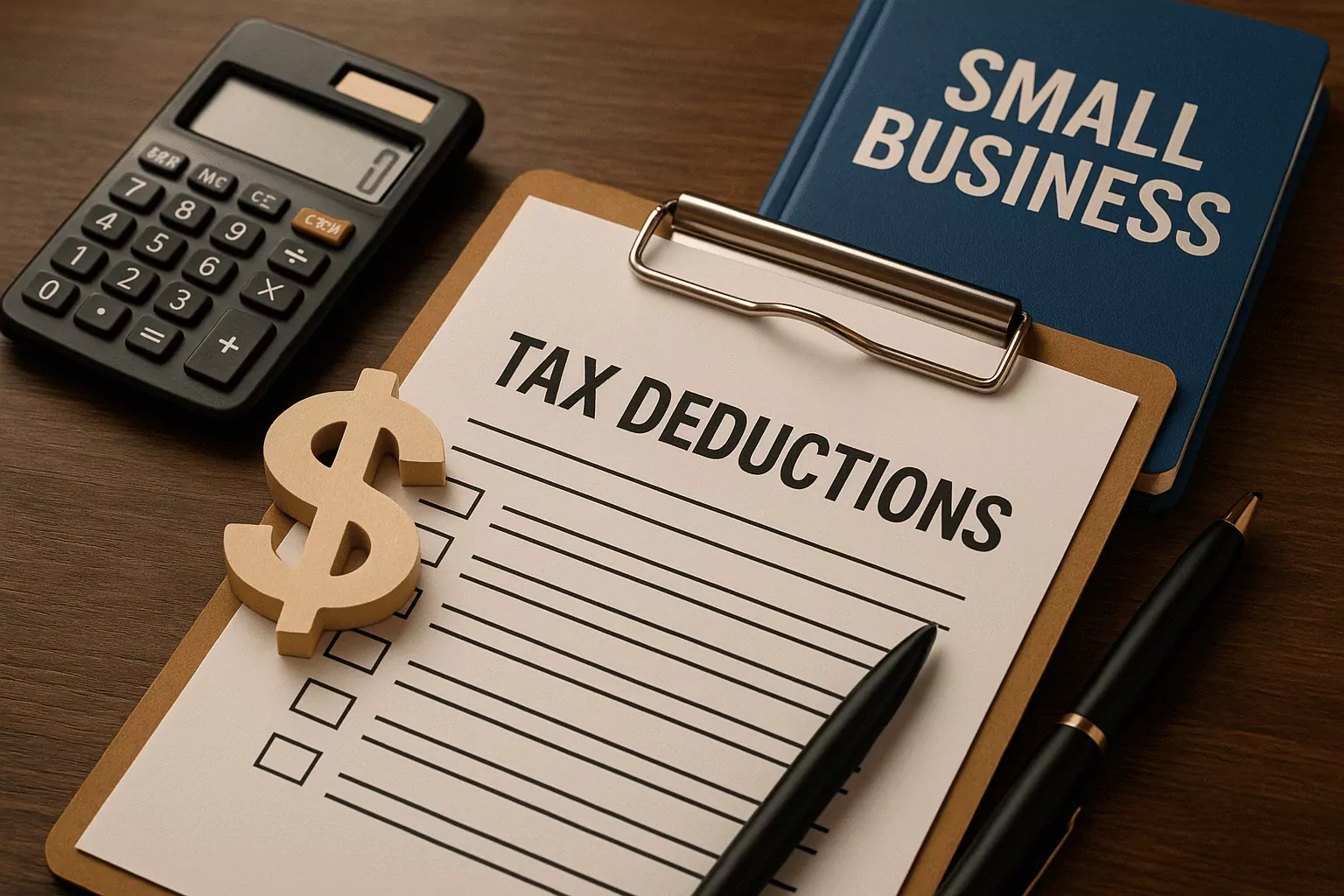Top Tax Deductions Every Small Business Owner Should Know
Maximize Savings: Crucial Tax Deductions for Small Businesses to Reduce Expenses and Boost Profitability

Introduction
As a small business owner, navigating the complex world of taxes can often feel overwhelming. Understanding tax planning is essential, especially when it comes to maximizing your savings through tax deductions. Many entrepreneurs overlook valuable opportunities that can significantly reduce their taxable income. By knowing the right deductions available, you can strategically lower your tax bill and keep more funds available for growth. In this guide, we will explore critical tax deductions that every small business owner should be aware of, empowering you to make informed financial decisions. Let's dive into essential tax tips that can lead to substantial savings for your business.
Main Content
1. Home Office Deduction
One of the most common yet underutilized deductions is the home office deduction. If you use a portion of your home exclusively for business purposes, you may qualify for this deduction. The IRS allows you to deduct expenses related to the part of your home used for business, including mortgage interest, insurance, utilities, and depreciation. For example, if your home office occupies 10% of your home, you can deduct 10% of your home-related expenses. This deduction can lead to significant tax savings for entrepreneurs who operate from home.
To claim the home office deduction, you have two options: the simplified method or the regular method. The simplified method allows you to deduct $5 per square foot of your home used for business, up to a maximum of 300 square feet. On the other hand, the regular method requires you to calculate actual expenses, which can be more beneficial in some cases. Always keep accurate records of your expenses and consult with a tax professional to determine which method is best for your situation.
2. Business Vehicle Expenses
If you use your vehicle for business purposes, you can deduct related expenses. The IRS provides two methods for calculating vehicle deductions: the standard mileage rate and actual expenses. The standard mileage rate for 2023 is 65.5 cents per mile driven for business, which can add up quickly for entrepreneurs who travel frequently. For instance, if you drive 1,000 miles for business, that equates to a deduction of $655.
The actual expense method allows you to deduct the actual costs incurred for your vehicle, including gas, repairs, insurance, and depreciation. To maximize your tax write-offs for small businesses, maintain detailed records of your mileage and expenses. Utilizing apps or spreadsheets can assist in keeping your records organized and easily accessible when filing your taxes.
3. Business Supplies and Equipment
Another area where small business tax tips can come in handy is in the deductions for business supplies and equipment. Items such as computers, office furniture, and other necessary tools for your business can be written off as deductible business expenses. For example, if you purchase a new laptop for your business at $1,200, that amount can be deducted from your taxable income.
Additionally, under Section 179 of the IRS tax code, you can deduct the full purchase price of qualifying equipment purchased or financed during the tax year. This deduction allows small business owners to invest in their growth while enjoying immediate tax benefits. It's crucial to stay updated on the thresholds and limits for Section 179 deductions to optimize your tax savings.
4. Professional Services and Education
Investing in your business often means hiring professionals for services like accounting, legal advice, or marketing. These expenses are fully deductible, providing significant tax benefits. For instance, if you hire an accountant to help with your tax planning, that fee can be deducted as a business expense. This is particularly important for entrepreneurs who may not have the expertise to navigate tax regulations on their own.
Additionally, any costs associated with continuing education, workshops, or conferences related to your business can be deducted as well. This not only allows you to improve your skills but also reduces your taxable income. Keeping receipts and documentation for both professional services and educational expenses is essential to ensure you can substantiate these deductions during tax season.
Conclusion
Understanding tax deductions is a critical aspect of effective tax planning for small business owners. By taking advantage of the deductions discussed, such as home office expenses, vehicle costs, and business supplies, you can significantly reduce your taxable income and improve your financial health. Stay organized, keep detailed records, and don't hesitate to seek professional advice to ensure you're making the most of your tax write-offs for small businesses. If you're looking for personalized assistance, contact Premier Tax and Business Services at 314-669-7300 or visit us at www.premiertbs.com to learn more about optimizing your tax strategy.
Frequently Asked Questions
What are the most common tax deductions for small businesses?
Some of the most common tax deductions for small businesses include home office expenses, vehicle costs, business supplies, and professional services. Additionally, costs for utilities, rent, and insurance can also be deducted. Each business's specific deductions may vary based on its unique circumstances, so it's wise to consult with a tax professional to identify all possible deductions.
How can I maximize my tax deductions?
To maximize your tax deductions, maintain meticulous records of all business-related expenses throughout the year. Use accounting software or spreadsheets to track your expenses and categorize them accurately. Consulting with a tax advisor can also uncover additional deductions you may not have considered, helping you to strategize your tax planning effectively.
Are there any deductions specific to remote work?
Yes, remote workers can benefit from specific deductions such as the home office deduction, which allows you to write off a portion of your home-related expenses. Additionally, expenses related to internet and phone services used for business purposes can also be deductible. Keeping detailed records of these expenses is crucial to ensure you can take full advantage of these deductions.

